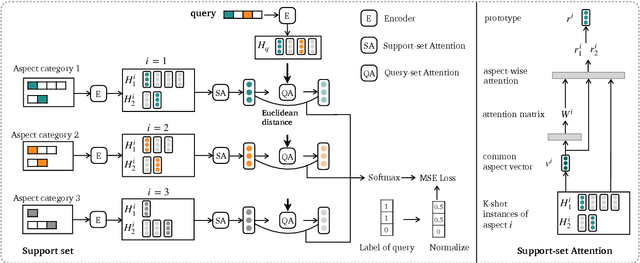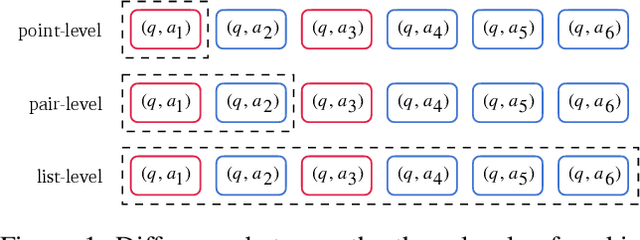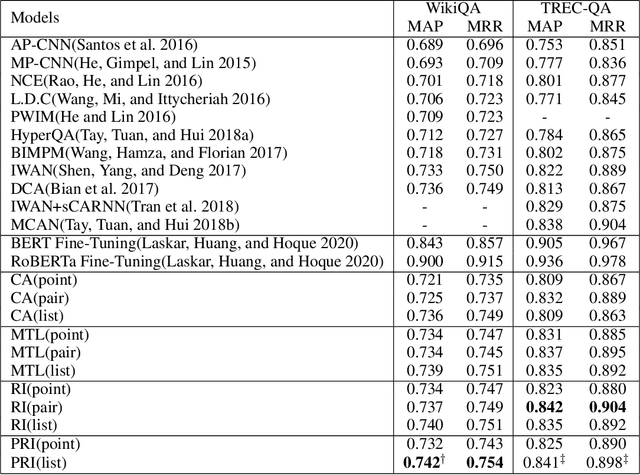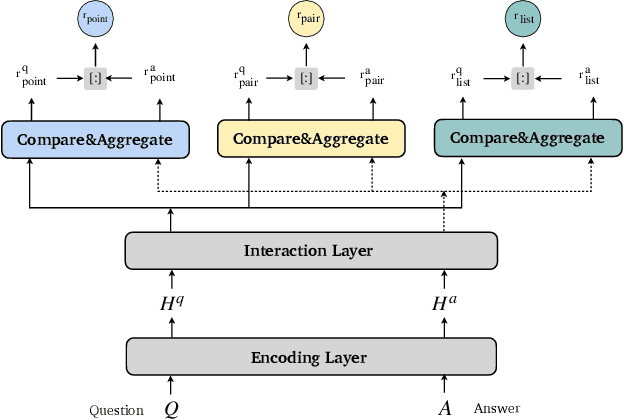Tiegang Gao
Multi-Label Few-Shot Learning for Aspect Category Detection
May 29, 2021



Abstract:Aspect category detection (ACD) in sentiment analysis aims to identify the aspect categories mentioned in a sentence. In this paper, we formulate ACD in the few-shot learning scenario. However, existing few-shot learning approaches mainly focus on single-label predictions. These methods can not work well for the ACD task since a sentence may contain multiple aspect categories. Therefore, we propose a multi-label few-shot learning method based on the prototypical network. To alleviate the noise, we design two effective attention mechanisms. The support-set attention aims to extract better prototypes by removing irrelevant aspects. The query-set attention computes multiple prototype-specific representations for each query instance, which are then used to compute accurate distances with the corresponding prototypes. To achieve multi-label inference, we further learn a dynamic threshold per instance by a policy network. Extensive experimental results on three datasets demonstrate that the proposed method significantly outperforms strong baselines.
Hierarchical Ranking for Answer Selection
Feb 01, 2021



Abstract:Answer selection is a task to choose the positive answers from a pool of candidate answers for a given question. In this paper, we propose a novel strategy for answer selection, called hierarchical ranking. We introduce three levels of ranking: point-level ranking, pair-level ranking, and list-level ranking. They formulate their optimization objectives by employing supervisory information from different perspectives to achieve the same goal of ranking candidate answers. Therefore, the three levels of ranking are related and they can promote each other. We take the well-performed compare-aggregate model as the backbone and explore three schemes to implement the idea of applying the hierarchical rankings jointly: the scheme under the Multi-Task Learning (MTL) strategy, the Ranking Integration (RI) scheme, and the Progressive Ranking Integration (PRI) scheme. Experimental results on two public datasets, WikiQA and TREC-QA, demonstrate that the proposed hierarchical ranking is effective. Our method achieves state-of-the-art (non-BERT) performance on both TREC-QA and WikiQA.
 Add to Chrome
Add to Chrome Add to Firefox
Add to Firefox Add to Edge
Add to Edge